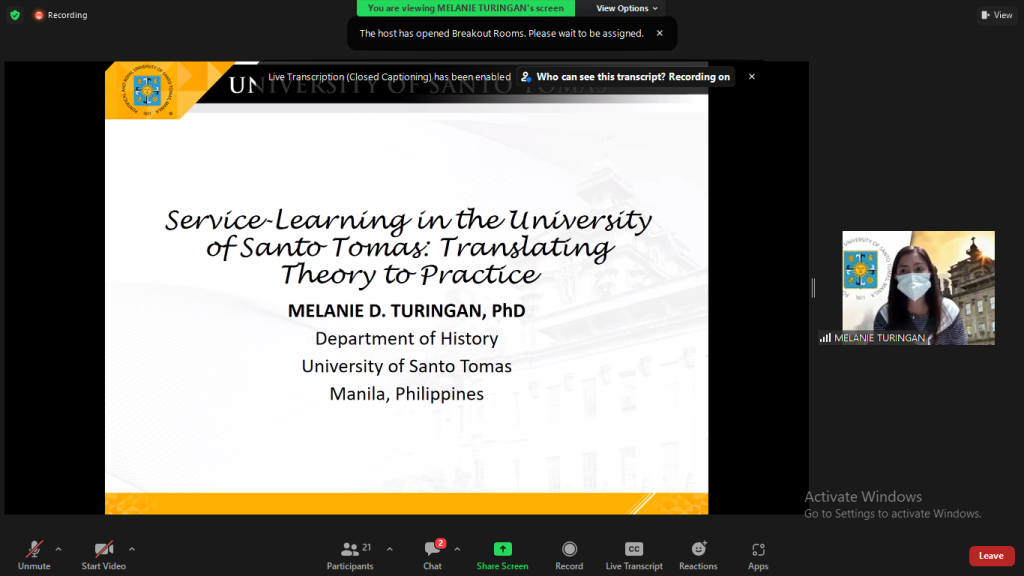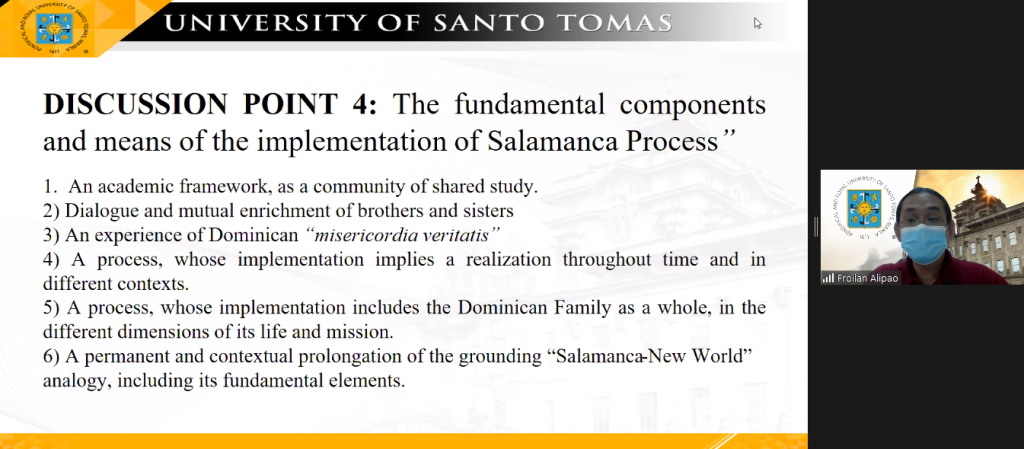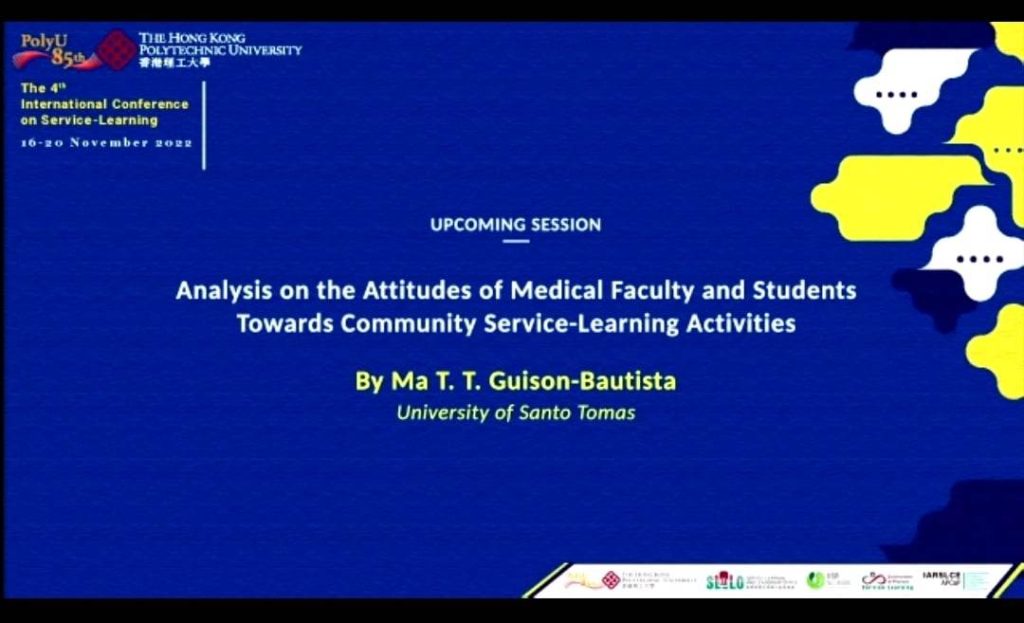Thomasian researchers, in an effort to advance Service-Learning (SL) towards its institutionalization, participated in the 4th International Conference on Service-Learning (ICSL) 2022, organized by the Hong Kong Polytechnic University (PolyU) from November 16 to 18, 2022.





Asst. Prof. Froilan Alipao of the Faculty of Arts and Letters (AB) Sociology Department, Assoc. Prof. Evalyn Abiog of the AB Department of English, Assoc. Prof. Melanie Turingan of the AB History Department, Prof. Ma. Teresa Tricia Guison-Bautista of the Faculty of Medicine and Surgery, and Ms. Heiden Anorico of the National Service Training Program presented their research during the conference.
Alipao presented his paper “AraLinkCoD: A proposed Service-Learning praxis framework of UST vis-à-vis the Salamanca Process.” In his presentation, he introduced the see-judge-act method involved in the Salamanca Process that can guide Catholic higher education institutions such as UST in their Service-Learning delivery.
In her paper “Pedagogical Approaches and Methods in Service-Learning: A Multiple-Case Study,” Abiog presented the Service-Learning pedagogies in four undergraduate courses: 1) Community Outreach at the Conservatory of Music, 2) Community Health in Medical Technology at the Faculty of Pharmacy, 3) Community Health Nursing at the College of Nursing, and 4) Math in the Modern World at the College of Science. She described these SL courses as exploratory, transformative, social constructivist, and research-based.
Turingan presented her paper “Service-Learning in the University of Santo Tomas: From Theory to Practice.” In her presentation, Turingan accentuated the expressive, artistic, transformative, and social constructivist application of SL in the curricula rooted in experiential learning.
To highlight the Service-Learning initiatives of the UST Faculty of Medicine and Surgery, Guison-Bautista presented two papers titled the “Analysis on the attitudes of medical faculty and students towards community service-learning activities” and “Dimensions of a culturally-sensitive community service attitude scale for Filipino medical students.”
Ms. Heiden Anorico of the NSTP presented her paper on “eService-Learning: Understanding college students’ online community engagement in the time of pandemic.” Anorico shared students’ online community engagement according to the eService-Learning Triad which are: 1) the Area of Cognizance, 2) the Area of Connection, and 3) the Area of Concern. These areas encompass students’ online environment, issues, and discourse.
Alipao, Abiog, Turingan, and Anorico are research associates of the UST Research Center for Social Sciences and Education (RCSSED), while Guison-Bautista is affiliated with the UST Research Center for the Health Sciences (RCHS).
The 4th International Conference on Service-Learning (ICSL) 2022 was part of the 85th founding anniversary of the Hong Kong Polytechnic University, which was attended by academics, scholars, and students in a hybrid setup.




